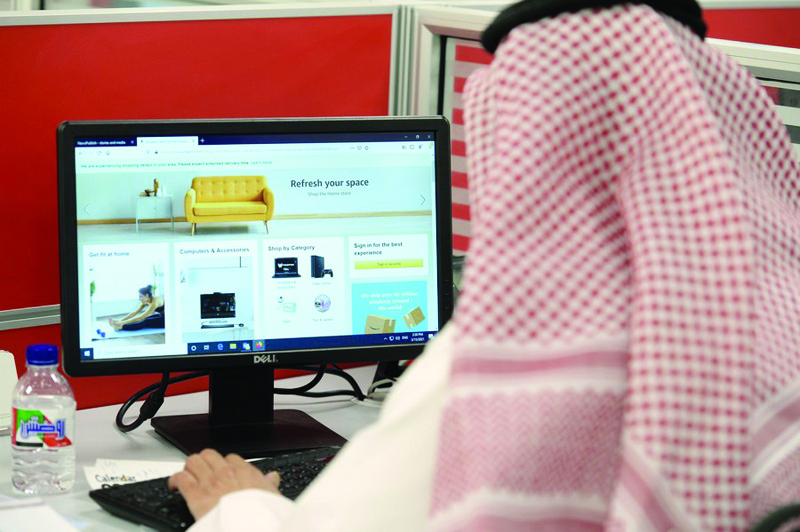KUWAIT: With a worrying increase in COVID-19 cases in Kuwait, there have been marked changes in the residents' habit as more of them now avoid going to public places and fill their needs by online shopping. Modhi Al-Otaibi, a 46-year-old retiree from the Kuwaiti Ministry of Electricity, said she purchases her grocery from online sites, and all the needed items such as vegetables, fruits, bread, cheese and clothes are just a click away.
For Hamad Al-Enzi, a 35-year-old employee of a local bank, the hands-on visit to the old Al-Mubarakiya market for meat is no longer necessary, because his mobile phone serves him well in ordering meat directly from the supplier Al-Mawashi company.
Currently, it comes as no surprise to see many delivery trucks loaded with goods travelling across Kuwait. "This scene was imposed by the coronavirus outbreak and encouraged by companies which provided and developed their online services for customers, and competed through their offers," Khalid Al-Otaibi, vice-president of the Kuwait Union of Consumer Cooperative Societies, told Xinhua. E-shopping saves time and effort and provides safety in such circumstances of COVID-19, Otaibi said.
Research showed that the online grocery in Kuwait exceeded $500 million in 2020, with expectations of a further jump to more than $700 million by the end of 2021, an impressive fact for a country known for its commercial complexes which were almost always crowded before the coronavirus outbreak.
Tamadur Al-Saleh, who works for the Kuwaiti Ministry of Education as a teacher, told Xinhua that she was a shopaholic like most of the people in the country. "Before the coronavirus, I would go to Avenues Mall (the largest shopping mall in Kuwait) at least twice a week, to keep up with the new trend and fashion and buy whatever suits me," she said.
However, her fear of getting infected led her to buy new collections online from the famous clothing stores that have activated their websites and social media accounts with discounts to attract more customers. Nadine Aref, a 37-year-old Jordanian who works for a private company in Kuwait, told Xinhua that she has become more economical in spending money amid the instability of the labor market and the high risk of being laid off, and turned to a grocery app to buy vegetables and fruits.
"I spend about KD 10 ($33) a week in buying vegetables and fruits through this app," Aref said. "Their service is very good and fast, and it allows me to save time and avoid exposure to the risk of infection, in addition to a very competitive price," she added.
Maitham Al-Shakhs, a Kuwaiti economic analyst, told Xinhua that consumer goods have played a major role in promoting e-commerce in Kuwait after coronavirus changed the people's purchase behavior and motivated them to buy online. He expected the delivery applications and electronic website services to expand in the future to include other sectors such as maintenance services if the current anti-coronavirus precautionary measures continue. - Xinhua



